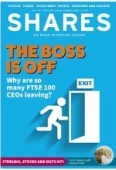The Turkish stock market has performed better than any other global counterpart in 2022 to date, leaving its wider emerging markets benchmark for dust. The ISE National 100 index in Istanbul is up 72.2% as of 21 September 2022.
These gains have been eked out despite sky-high inflation. This perhaps reflects the country’s decision to go against the grain and cut interest rates and attempts by Turkish investors to get a return at least somewhere approaching an 80% inflation rate.
A recovery in the all-important tourist industry in the wake of the pandemic may also have helped sentiment, while Turkey is also benefiting from a reallocation of global supply chains.
At the same time Turkish stocks are inexpensive after years of underperformance which has left its weighting in the MSCI Emerging Markets index at very modest levels.
Over the last 10 years the annualised return from the MSCI Turkey index is -4.9% compared with 5.7% for MSCI Emerging Markets as the country has endured political instability and a currency devaluation.
Writing in 2021 the OECD noted that: ‘For a more inclusive and sustained recovery structural challenges such as low labour force participation of women, widespread informality, weak skills, rigid employment rules hampering reallocation and large share of low-quality employment have to be addressed.’
Unlike other emerging markets there are limited signs of innovation in the Turkish economy, with technology under-represented in the Turkish market. Instead the industrials and financials sectors dominate, accounting for more than 50% of the MSCI Turkey index.
This outlook is part of a series being sponsored by Templeton Emerging Markets Investment Trust. For more information on the trust, visit here.
‹ Previous2022-09-29Next ›

 magazine
magazine








